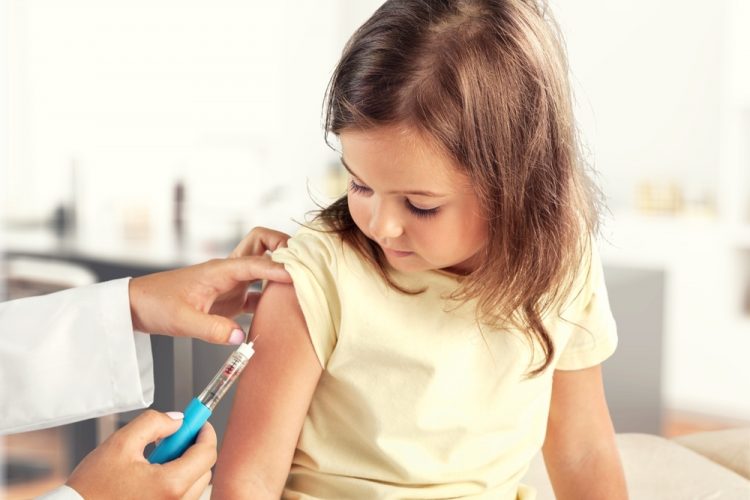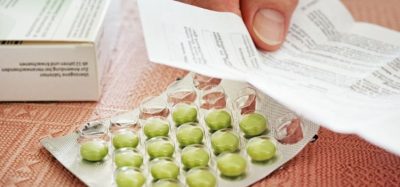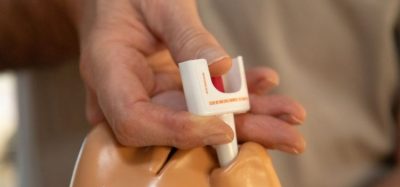Vaxneuvance™ meets immunogenicity and safety endpoints in Phase III trial
Posted: 27 August 2021 | Anna Begley (European Pharmaceutical Review) | No comments yet
Merck announces positive results from a Phase III study evaluating Vaxneuvance™ against a pneumococcal conjugate vaccine in infants.


Merck have announced topline results from the pivotal PNEU-PED (V114-029) Phase III study evaluating the immunogenicity, safety and tolerability of Vaxneuvance™ (pneumococcal 15-valent conjugate vaccine) in healthy infants enrolled between 42-90 days of age. In the trial, infants were given a four-dose regimen of either of Vaxneuvance or the licensed 13-valent pneumococcal conjugate vaccine (PCV13) at two, four, six and 12-15 months of age.
Vaxneuvance, Merck’s 15-valent pneumococcal conjugate vaccine, consists of purified capsular polysaccharides from Streptococcus pneumoniae serotypes 1, 3, 4, 5, 6A, 6B, 7F, 9V, 14, 18C, 19A, 19F, 22F, 23F and 33F individually conjugated to CRM197 carrier protein.
Vaxneuvance is indicated for active immunisation of adults 18 years of age and older for the prevention of invasive disease caused by the S. pneumoniae serotypes contained in the vaccine. It is currently under investigation in the paediatric population. The vaccine previously received Breakthrough Therapy designation from the US Food and Drug Administration (FDA) for the prevention of invasive pneumococcal disease in paediatric patients 6 weeks to 18 years of age.
PNEU-PED is a Phase III, multi-centre, randomised, double-blind, active-comparator-controlled study evaluating the safety, tolerability and immunogenicity of a four-dose regimen of Vaxneuvance in 1720 healthy infants enrolled at 42-90 days of age.
In the primary analysis, participants were randomised to receive Vaxneuvance or PCV13. Immune responses for the 13 shared serotypes contained in Vaxneuvance and PCV13 were measured at 30 days post-dose three and post-dose four.
In the Phase III study, primary endpoints demonstrated:
- Vaxneuvance had a safety profile generally comparable to PCV13 following receipt of any vaccine dose.
- At 30 days following the third dose in the series, Vaxneuvance was non-inferior to PCV13 for all 13 shared serotypes based on serotype-specific response rates and for 12 of the 13 shared serotypes based on serotype-specific IgG geometric mean concentrations (GMCs).
- The lower bounds of the two-sided 95 percent confidence intervals (CI) for the serotype-specific IgG GMC ratios were >0.5 for 12 shared serotypes; the lower bound was 0.48 for serotype 6A, narrowly missing non-inferiority criteria.
- At 30 days following the fourth (toddler) dose (PD4), Vaxneuvance was non-inferior to PCV13 for all 13 shared serotypes based on serotype-specific IgG GMCs.
Secondary endpoints demonstrated statistically superior immune responses for Vaxneuvance in comparison to PCV13 for shared serotype 3 and unique serotypes 22F and 33F based on prespecified criteria, as well as non-inferior immune responses to antigens contained in several routinely used paediatric vaccines when administered concomitantly with Vaxneuvance or PCV13.
“By nature, pneumococcal disease is constantly evolving. Strains of the disease associated with invasiveness cause significant disease burden in children, calling for innovation to help protect this vulnerable population worldwide,” stated Dr Roy Baynes at Merck Research Laboratories. “At Merck, our goal is to design pneumococcal vaccines that target strains causing the greatest proportion of disease while maintaining a strong immune response to these serotypes. With the inclusion of serotypes 22F and 33F, Vaxneuvance has the potential to play an important role in the prevention of invasive pneumococcal disease in children.”
In PNEU-LINK (V114-031), a Phase III study to evaluate the safety and tolerability of Vaxneuvance in healthy infants, the vaccine was generally well-tolerated, with a safety profile generally comparable to PCV13 in healthy infants enrolled at 42-90 days of age. Full results from the PNEU-PED and PNEU-LINK studies will be presented at an upcoming scientific congress.
Related topics
Big Pharma, Clinical Development, Clinical Trials, Drug Development, Drug Safety, Drug Targets, Immunisation, Research & Development (R&D), Vaccines









